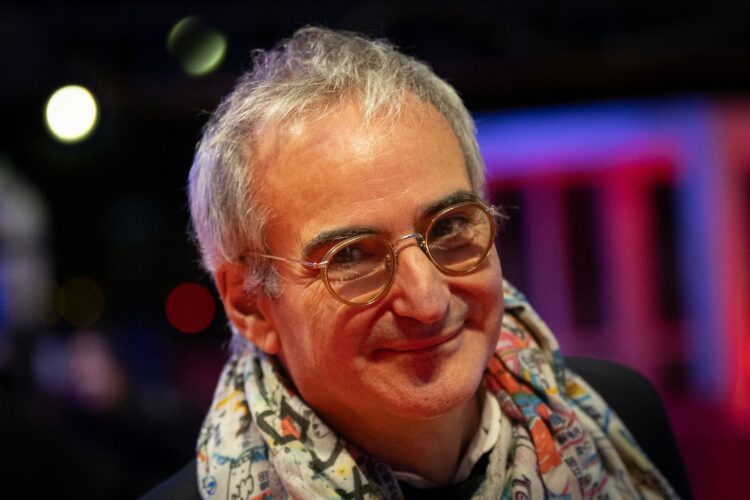
Whether it’s a tough marketplace, debuting at a crowded festival, or the fairly established fact that most people don’t want to see films pertaining to COVID (look no further than Bertrand Bonello’s Coma), Olivier Assayas’ Suspended Time has, from its premiere at Berlinale in early 2024, taken an extra beat to arrive stateside. This despite its director remaining a major figure some 40 years since his feature debut, and hot off the career benchmark that was Irma Vep. Whatever the case, it’s not a qualitative matter––Suspended Time is a deeply pleasing, pleasurable work that couches the near-universal fears, anxieties, and odd joys of 2020 in a veiled cine-memoir concerning Assayas’ life, work, and psyche.
Having spoken to him several times over the years, I was glad to conduct (fittingly?) a Zoom interview as the film prepares its U.S. release. I also happened to catch Assayas at a unique moment: while promoting the slightly belated release of one film, he’s already completed and set to debut another––The Wizard of the Kremlin, his adaptation of Giuliano da Empoli’s French literary sensation that might be something of a Vladimir Putin biopic starring Jude Law. His feelings about the imminent arrival could offer an object lesson to any artist who fears they don’t have the right headspace about debuting new work.
The Film Stage: You and I had spoken in 2019 for Wasp Network, and in that interview we talked about the use of voiceover, which I was compelled by because you’d never really used it in your career. As a huge fan, I can’t tell you how excited I was when Suspended Time started and I realized that the voice was you. I feel like every French filmmaker puts themselves in their movies at some point, and you finally did it here.
Olivier Assayas: I think it’s the only way I could do it.
With all of that in mind––maybe you’re sort of answering the question––how did you direct yourself? What told you your performance was sufficient?
To be honest, we recorded it in two takes. Maybe three, max, and then we changed a word here and there. I mean, it was the easiest part of the shoot. I don’t know. For some reason I had the music of the voiceover within me, and it just came out completely naturally. Completely naturally. And I suppose that for me, the model, the inspiration was Guy Debord, who in his films––like In girum imus nocte et consumimur igni––he does the voiceover, and I think it’s what gave a very specific emotion to those movies, so I tried to do it my own way.
And were you okay hearing it? Did you come out satisfied?
Well, I was surprised to actually be happy with what I did, yes. I don’t function like that normally [Laughs] but in this case, to me, it was the easiest part of the film. You know, it was exactly what… I had a very precise notion of what I wanted. We recorded it; it worked. In the new one, in the next one––in The Wizard of the Kremlin, which will be in Venice––there’s a lot of voiceover. A lot of voiceover. But it’s also because I’m adapting a novel, so it’s based on… I just wanted to hear, also, the style of the writer.
There’s a really interesting relationship with the outside world in this film, where before the epilogue, everybody comes to the characters from this literal and figurative distance. I feel like you found some of the more conducive, worthwhile ways to shoot those conversations––the blocking of the actors, the editing rhythms––and I’m curious, from a very practical standpoint, were you having actors on video calls speak into and record on a computer?
Yes, yes, yes. They were live. They were live, and they were in the same little village. I mean, we rented a room in some of our neighbor’s houses, and we had a digital camera, and usually the actor or the actress who was interacting [Laughs] was on his own. Maybe there was one sound man with him.
Olivier Assayas and cast at Berlinale 2024 © Jens Koch
I imagine you’re incapable of making a bad shot, of composing a boring frame. But I do think that when… like the frames that we have right now over Zoom, you being you, your framing of this conversation is better than mine. But when normal people, like a therapist or your ex-partner, are talking to you, it’s likely going to be a bit utilitarian how they frame it. And I’m curious what some of the thinking was with a fidelity to reality, but not wanting to create boring images.
You know, I’m thinking of the scene when the daughter, the little girl, takes the phone and runs around with the phone. I mean, I kind of liked the idea that she was filming herself––she was filming herself and she was having, simultaneously, a conversation. And I was surprised. I mean, I thought, “I will never get away with this,” but yes: it kind of worked. The thing is that: in Suspended Time, every new set is a big event, is a big deal.
So every single shot where, all of a sudden, they interact with someone we’re not familiar with, we haven’t seen before––all of a sudden it’s exciting. Narratively, it’s new. So the audience is happy and I’m happy. [Laughs] Because you know, there are characters you don’t know if they’re going to show up. I mean, you don’t expect, like, the wife––you know, the ex-wife––you’re not sure you’re going to get to see her. But yes: all of a sudden she pops up.
When we talked about Irma Vep a few years ago, you said something about how the director character is you, but isn’t you; Jade Lee is Maggie Cheung, but isn’t Maggie Cheung.
Mmm-hmm.
There are certain characters in this film, like the ex-wife––maybe I can make some inferences about who that is based on––or your brother, I know, is this great rock journalist. You’ve said an actor has “invisible vibes” that you kind of pick up on as a director. Are you more conscious of who you’re casting and the performance they’re giving when it’s based on real people, people who you know?
Well, it’s difficult to answer. Vincent Macaigne doesn’t really look like myself, and Micha Lescot doesn’t look like my brother. But in a certain way, we are similar. And I think it’s, somehow, the difference between… the discrepancies between the two brothers is ultimately what makes the film.
Right.
And I think that Micha is not exactly my brother, but he’s more about the idea I have of my brother. Or he corresponds to an idea, to something that is partially my brother. And Vincent, we have this relationship where he’s doing this––he’s the expert at imitating me. [Laughs] He’s doing an impersonation of me, and somehow it’s the distance between Vincent and myself that makes things… that somehow allows me to make the film. It’s that slight distance where it’s me, but it’s not exactly me. That makes me feel comfortable in a situation I would normally not feel comfortable with. And it’s because Vincent is a very funny and very skilled actor and playwright and stage director, and so on and so forth. I mean, he’s an artist himself. He’s not just an actor.
You know, the thing is: as much as he is myself––and especially in the movies we made together, and especially in this one––at the same time, the fact that he’s himself an actor, director, writer makes him… get into this. He appropriates the character in a way that is, in the end, part-him and part-me—much more than what I imagined initially. Because when I wrote it, I wrote it literally in the first person. I mean, when I was writing Suspended Time I didn’t have an actor in mind. Well, I certainly knew I would not play it myself––that I’m completely unable to do. [Laughs] I mean, that’s beyond.
But I knew that Vincent would appropriate it, meaning: he would be impersonating both himself and myself. That’s what I meant. He creates a character that’s halfway, and who’s a comedy character much more than myself. And the comedy dimension of the film is very precious to me because I think that, when you’re dealing with something intimate––when you have all the ghosts of your parents, grandparents flying around you––it’s better to keep your sense of humor [Laughs] and make it a comedy.
This film is a fun way to pick up different details of your working process. Was there really a film about Portuguese nuns that you had wanted to make with Kristen Stewart?
[Laughs] Uh, no. Yes and no. Yes and no. Actually it’s true, it’s true that I wanted to make a period piece with Kristen, but I never came up with the right subject. And yes: at some point I remembered from my father’s library this 17th-century piece called Memories of a Portuguese Nun, and I read it thinking, “Oh, maybe it could be interesting to do that. Maybe that’s the key to the lock.” And no. [Laughs]
This is the first film that you’ve made with Éric Gautier since 2012’s Something in the Air. He was sort of, along with Denis Lenoir, your main cinematographer for a number of years. I’m wondering what it was about this film or the circumstances that brought you two together again.
We hadn’t been working for a long time. Maybe because, I don’t know––after Something in the Air, I thought we went as far as we could and I needed to move on. And I think that it was a period when Éric had projects in the US. But I don’t know. I missed him; I love him. And the thing, also, is that we did Les Destinées sentimentales together and we did Summer Hours together, and I see the three movies as some sort of trilogy. I mean, you know, they are very different movies, but ultimately they are movies where nature is extremely present and important, and the relationship between nature and art. To me, it was the opportunity to work with Éric again. I had been missing him; I love him.
I mean, the movie looks terrific.
Yeah.
So you know––it worked out.
Yeah, it was. No, no, it was. He’s a great cameraman.
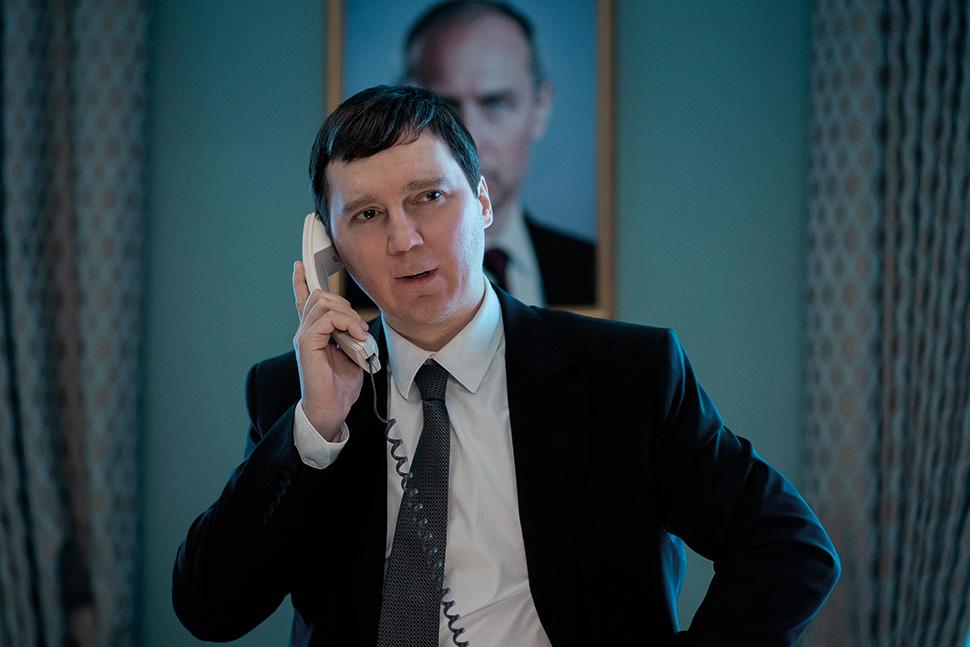
The Wizard of the Kremlin
I imagine I’m talking to you at this unique moment in time, because The Wizard of the Kremlin debuts this month at Venice. Has there been, over the decades, some consistent feeling just before you premiere a movie, knowing people––including cast and crew––are going to see it for the first time? Do you tend to feel confident?
No. [Laughs] I can give you a straightforward answer: no. No, no. And I’ve always thought that, with time, it might change, but no––it gets worse.
Really?
Yeah. I don’t know what the film is until I’ve screened it, until it has been seen by a full house with the worst or the best possible audience. I don’t know. When you are in a major film festival, everybody’s there basically. So it’s extremely intimidating. And here, it’s… a complex, expensive film. It’s two-and-a-half hours. It’s not simple. I have a lot on my back.
I just want to mention very quickly: I believe I’m going to host the U.S. premiere of A New Life and Paris Awakens this fall.
Oh, that’s cool. No, that’s good news.
They’re the two movies of yours I haven’t seen, so I’m very excited.
Yeah, no, I was really happy Bruno [Pésery] green-lighted it, like, a year ago. So I did the restoration job. And I was really happy to do it. It was extremely strange because Une nouvelle vie [A New Life], I hadn’t even… I mean, there never was a DVD; there never was a Blu-ray. It’s been on French TV once 20 years ago, 30 years ago, whatever. So all of a sudden, you know, I’m just happy it’s resurrected, but I hope it’s… yeah, no, I hope that they make a deal for a Blu-ray. I’m happy the films are revived.
Suspended Time enters a limited release on Friday, August 15.
The post “I Will Never Get Away with This”: Olivier Assayas on Making Reality Fiction with Suspended Time and Premiering The Wizard of the Kremlin first appeared on The Film Stage.
from The Film Stage https://ift.tt/RcXwVBk

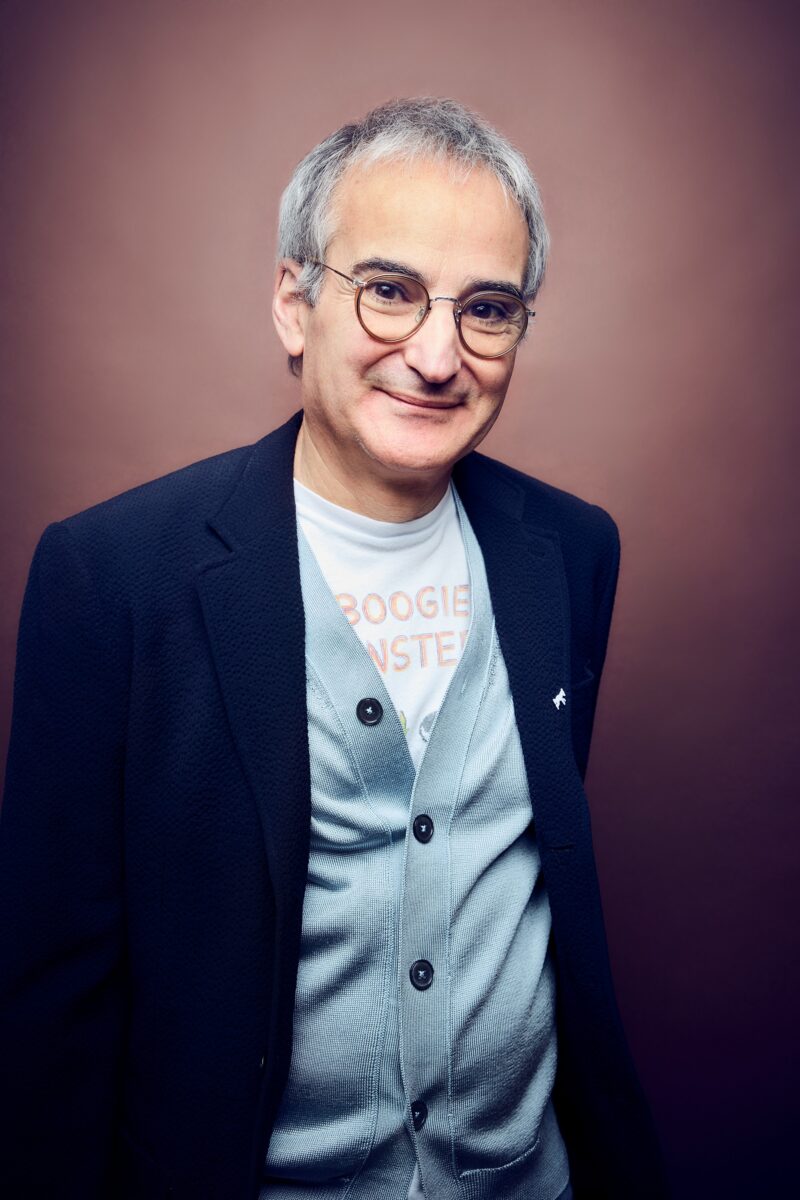
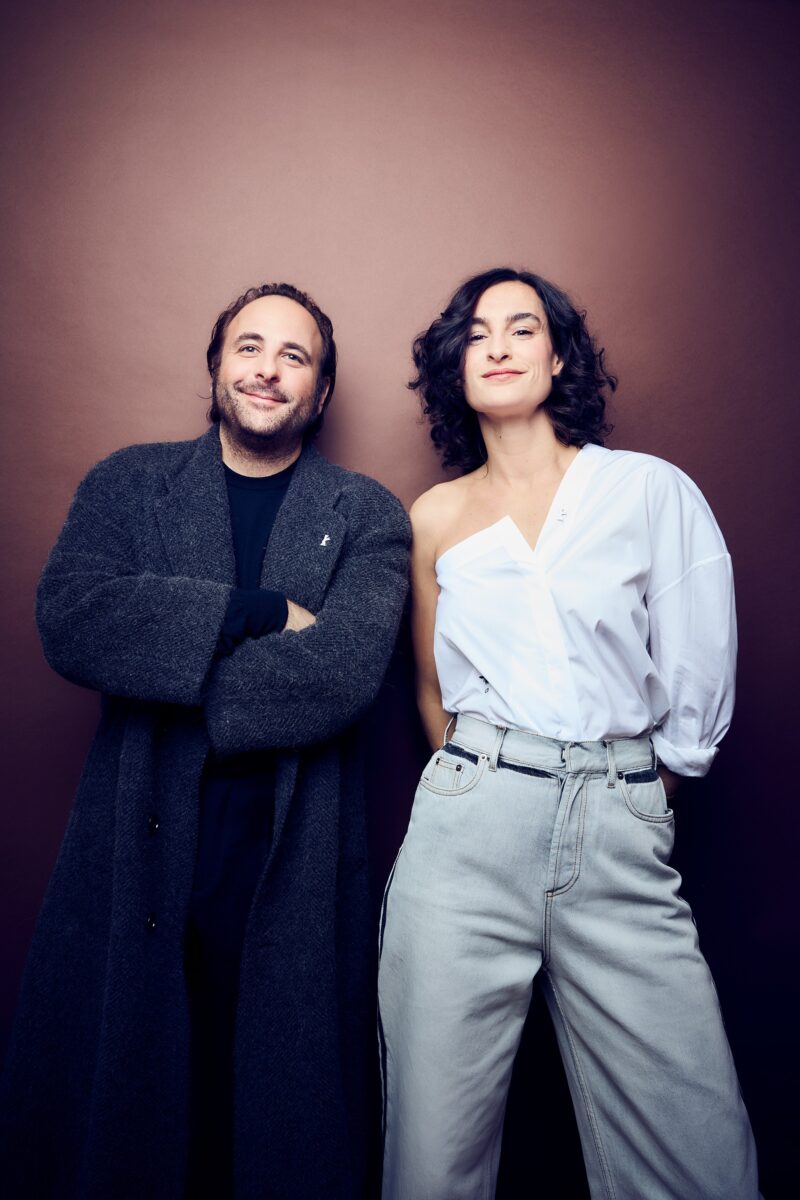
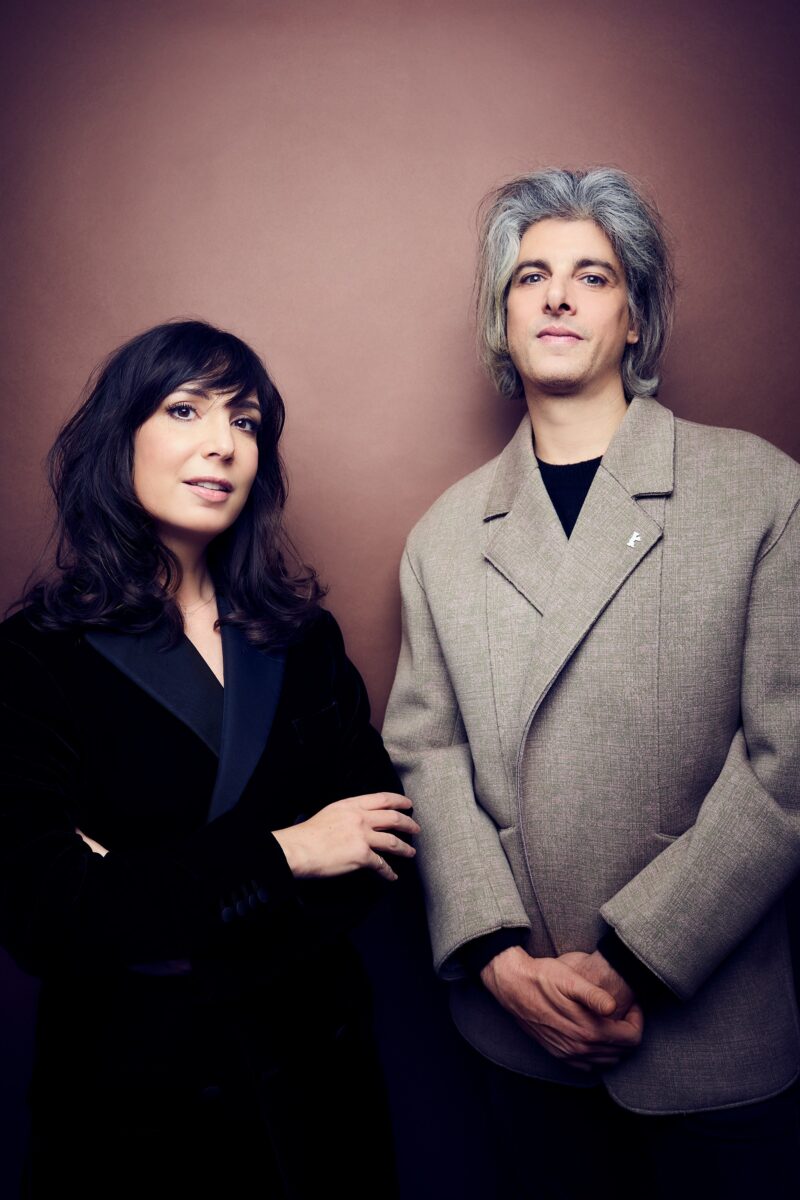

0 Comments